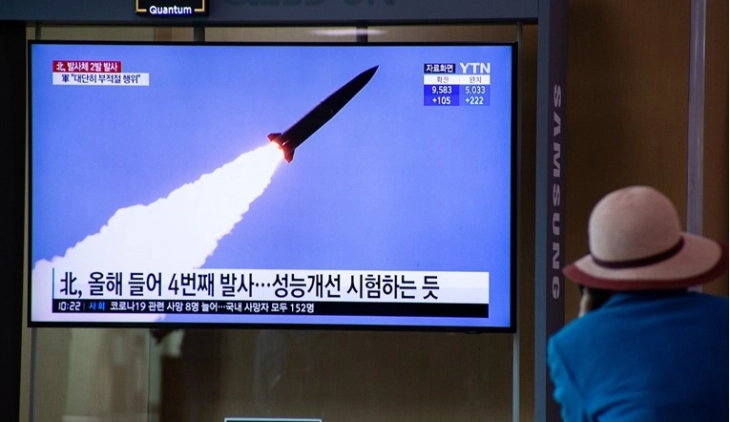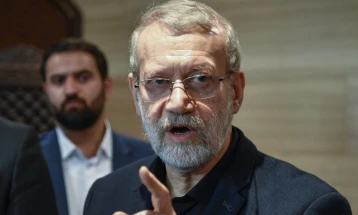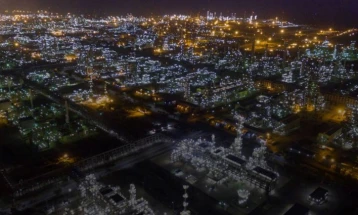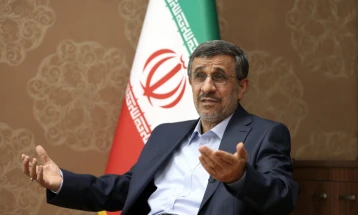South Korea says Pyongyang fired intercontinental ballistic missile

Seoul, 3 November 2022 (dpa/MIA) - Pyongyang on Thursday fired an intercontinental ballistic missile (ICBM) towards the Sea of Japan, also known as the East Sea, the South Korean military said.
News agency Yonhap cited South Korea's Joint Chiefs of Staff (JCS) as saying that it detected what it believed to be an ICBM launch from the Pyongyang area followed by two launches of what appeared to be short-range ballistic missiles from Kaechon, some 90 kilometres north of the capital.
The ICBM was launched at around 7:40 am (2240 GMT Wednesday) and flew about 760 kilometres, according to the JCS. Yonhap cited a defence source as saying that the missile appeared to have failed in normal flight following the second stage of separation.
Missiles with the capability to travel more than 5,500 kilometres are counted as ICBMs. UN resolutions prohibit North Korea from testing ballistic missiles of any range, some of which are capable of carrying a nuclear warhead.
The US State Department condemned the launch, saying that it "demonstrates the threat [North Korea's] unlawful weapons of mass destruction and ballistic missile programs pose to its neighbors, the region, international peace and security, and the global non-proliferation regime."
In a statement, State Department spokesperson Ned Price called on "all countries" to fully implement UN resolutions "which are intended to prohibit [North Korea] from acquiring the technologies and materials needed to carry out these destabilizing tests."
The Japanese government said one of the three missiles disappeared from radar over the Sea of Japan.
Japanese Defence Minister Yasukazu Hamada said the first of the three ballistic missiles was launched on a potential trajectory over Japan, correcting a previous statement saying that the missile had flown over the Japanese archipelago.
The reason for the missile's disappearance from radar over the Japan Sea was under investigation, he added.
On October 4, North Korea launched a missile over Japanese territory for the first time in nearly five years, sparking an international outcry.
German President Frank-Walter Steinmeier is currently in Japan and was set to fly to Seoul on Thursday evening.
The new launches come after North Korea fired more than a dozen missiles from its eastern and western coast on Wednesday, according to Seoul. South Korean fighter jets fired three air-to-surface missiles in response.
One of the missiles launched by Pyongyang crossed the maritime border with South Korea and landed in the sea just 60 kilometres from the coast.
This was the first time since the end of the Korean War in 1953 that a North Korean missile landed near South Korean territorial waters, a Defence Ministry spokesperson in Seoul said.
The latest North Korean missile tests and artillery shots were seen in South Korea as a reaction to the largest air exercise to be conducted by South Korean and US forces in several years, which kicked off on Monday and was set to last until Friday.
North Korea has accused both countries of "reckless" military provocation and threatened countermeasures.
The situation on the Korean peninsula is currently very tense. Nuclear-armed North Korea has conducted a string of missile tests over the past weeks.
The government in Pyongyang has said in its own statements that the tests were intended to simulate the firing of tactical nuclear weapons at South Korean airfields.
North Korea regularly accuses the United States of preparing an attack through its manoeuvres with South Korea, which both countries deny. The US has 28,500 soldiers stationed in South Korea.







